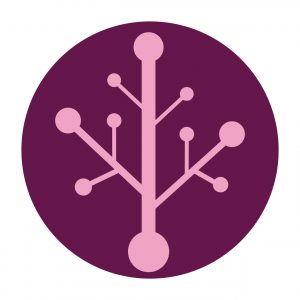My 10 favourite Social Innovation Practices: summary and free ebook

There are many practices and methods to facilitate Social Innovation and Collaborative Leadership that can be adapted depending to the context and needs of the specific problem we want to solve.
I have mentioned and written about many of them in this blog and have received a lot of questions and interest around them. In this post I have summarised my preferred ones, including some extra resources in case you want to explore further.
You can also find more details in my ebook “My top 10 social innovation practices”
1. Circle Practice:
Circle Practice is a highly adaptable modern form of generative dialogue which has existed throughout time as a form of gathering. Because circle is universal, it is familiar and easily learned; challenges current status quo and brings a natural sense of coherence to groups.
2. Dialogue Interviews:
Dialogue interviews are intended to engage the interviewee in a reflective and generative conversation. This form of interview builds deep relationships, builds your emphatic skills and can give you a deeper understanding of the system you are investigating. It can be used to prepare for projects, workshops, or capacity building programs.
3. Experiential Learning:
Is the process of making meaning from direct experience. Experiential learning plays an important role in helping particpants shift perspectives and access different intelligences.
4. Learning Journeys:
Learning or Sensing Journeys are a way of experiencing the system through the lens of different stakeholders. Together with other members/users of the system, participants will undertake small journeys to different places in that system, to gain new perspectives and insights.
5. Open Space:
Open Space Technology is a simple way to run productive meetings, for five to 2000+ people, and a powerful way to lead any kind of organisation, in everyday practice and extraordinary change.
HERE you can find an article with detailed instructions on how to organise one.
6. Rapid Prototyping:
Prototyping means to create a landing strip for the future you want to create, and to build something that allows you to explore an emerging idea or concept by doing something. Prototypes are an early draft of what the final result might look like.
Prototyping often goes through several iterations based on the feedback that you generate from other stakeholders.
7. U-process:
The U-Process is a methodology for addressing highly complex challenges— for solving complex problems or realizing complex opportunities. It is a “social technology” and a process design pattern for effecting the transformation of reality, within and across the worlds of business, government, and civil society.
- You can find more about the U process in these posts (in Spanish).
8. World Café:
As a conversational approach, the World Café is an innovative yet simple methodology for hosting conversations about questions that matter. These conversations link and build on each other as people move between groups, cross-pollinate ideas, and discover new insights into the questions or issues that are most important in their life, work, or community. As a process, the World Café can evoke and make visible the collective intelligence of any group, thus increasing people’s capacity for effective action in pursuit of common aims.
9. Design Thinking:
Design thinking is a methodology for practical, creative resolution of problems or issues that looks for an improved future result. In this regard it is a form of solution-based, or solution-focused thinking that starts with the goal or what is meant to be achieved instead of starting with a certain problem. Then, by focusing on the present and the future, the parameters of the problem and the resolutions are explored, simultaneously. This type of thinking most often happens in the built environment, also referred to as the artificial environment (as in artifacts).
- More about Design thinking in this blog: HERE and
- my full power point presentation to teach the basics of design thinking: HERE
10. Appreciative Inquiry:
Appreciative Inquiry is about the co-evolutionary search for the best in people, their organisations, and the relevant world around them. In its broadest focus, it involves systematic discovery of what gives “life” to a living system when it is most alive, most effective, and most constructively capable in economic, ecological, and human terms.
¿Do you know other Social Innovation Practices you want to share with us?



Gracias Guadalupe por el trabajo tan desinteresado que haces poniendo tu esfuerzo para que los que no estemos familiarizados con estas técnicas, tengamos un acceso fácil y concreto con estos resúmenes.
Vamos a poner en nuestro Face y web http://www.hub2fun.com algunos links a tus artículos, por ejemplo “World Café”, pondremos sobre todo en español y de vez en cuando alguno en inglés.
Saludos y animarte a que sigas con esta preciosa labor de divulgación.
Manuel
Muchas gracias Manuel! encantada de poder aportar. Seguimos en contacto y yo también pondré info sobre http://www.hub2fun.com un abrazo